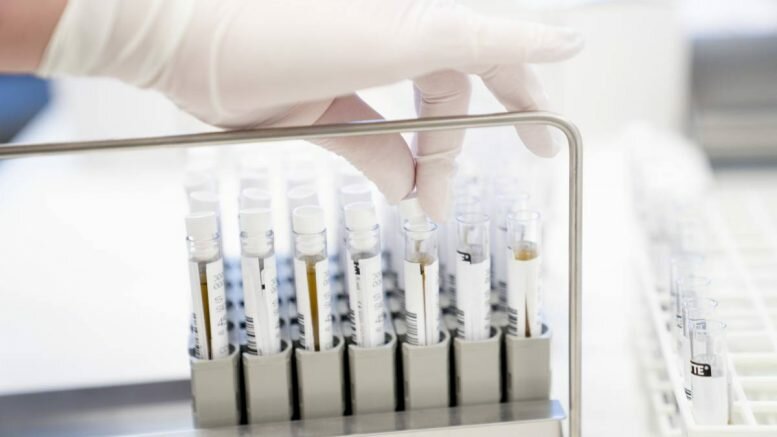Norwegian and American researchers believe an already known blood test can help predict which COVID-19 patients have an increased risk of becoming critically ill.
Researchers in several parts of the world are currently looking for different and better tools that can make it easier to predict which patients can be expected to become seriously ill if they have tested positive for coronavirus.
Recent findings based on blood samples taken from 1,641 adult COVID-19 patients at admission in Boston show a link between a higher risk of dying from COVID-19 and high values on the so-called RDW test (red cell distribution width).
The research results have been published in the Journal of The American Medical Association (JAMA).
RDW testing is used to measure variation in the amount and size of red blood cells. The result is stated in percent, where a high percentage means great variation in size: the patient has some large cells and some small cells.
Elevated RDW increases the risk of blood clots, cancer, heart attack, and stroke – and apparently very severe COVID-19.
In addition to high RDW values in patients with severe COVID-19, the RDW values also increased in patients where the condition worsened, while the corresponding RDW values appeared to be stable in patients who did not become ill after hospitalization.
Exciting!
“This is a very exciting discovery and an interesting article! Such a tool could make it possible to start targeted treatment earlier and lead to more people surviving,” doctor Cathrine Hadley told news bureau NTB.
She leads the Norwegian project PREDCOV (predict COVID) at Age Labs, which in July received NOK 6 million from the Research Council to develop a new blood test together with Bærum Hospital, Oslo University Hospital, and the Norwegian Institute of Public Health, in order to predict a high risk of serious illness at an early stage in the disease.
“The advantage of RDW is that this is a cheap routine blood test that is already in use. If this marker can detect those with a high risk of serious illness, it will mean that many lives can be saved. The advantage of this test is that it can be used as a tool already today, over large parts of the world,” she said.
The research is in its infancy, and there are several weaknesses in the test, such as not quite knowing which process it is you are measuring, something the American researchers also point out.
“However, this is less important as long as the test works, and there will certainly be more studies carried out in the future that address exactly this. This is a promising discovery, and I hope there will be more studies that confirm the discovery,” Hadley said.
Important tests
Hadley is aware that it is important to work broadly, and that more people are working to develop such tools to map vulnerability.
“Our test is based on epigenetics in white blood cells; that is, which genes in the immune system are turned on and off. There are many indications that there is a strong immune response that gets out of control when one dies of COVID-19, and therefore we’re basing the test on predicting this immune response. We’re developing the test by running advanced machine learning on data from biobanks, and we have some exciting findings,” Hadley noted.
The plan is to start testing in hospitals by the winter to measure how good the test is at identifying those at high risk of serious illness.
Hadley points out that predicting vulnerability is not only important when people are already infected, but also when predicting vulnerability in order to prioritize who should be vaccinated first.
“Such a screening test also has the potential to be able to provide adapted infection control advice based on individual risk, instead of an entire population having to be locked down,” she added.
If the PREDCOV test is successful, it will probably be more accurate than RDW.
The disadvantage is that it will be more expensive and that it will take time to develop and distribute such a test so that it becomes available.
© NTB Scanpix / #Norway Today






Be the first to comment on "Norwegian and US researchers make breakthrough in corona blood tests"